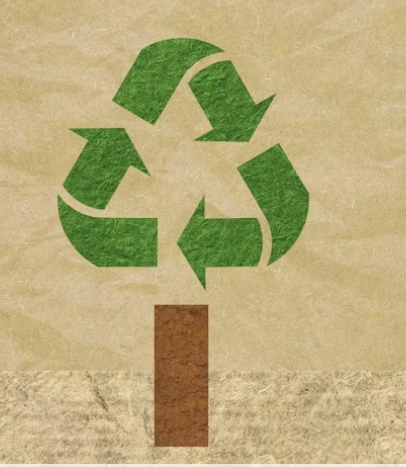By Theodore Dalrymple
My wife ordered a few printed labels online, and they arrived a week later through the post. I have known election propaganda less hectoring than the envelope in which they came.
 “Our packaging is now plastic-free,” it said, of course in green lettering, though not too brightly green. This was more olive than apple in colour; the latter might have suggested chemical dyes. “Even this [envelope] window is plasticless,” it said. Furthermore, the envelope was of “100 per cent recycled and recyclable paper”, certified by an organisation called Blue Angel. “100 per cent plastic-free,” it reiterated.
“Our packaging is now plastic-free,” it said, of course in green lettering, though not too brightly green. This was more olive than apple in colour; the latter might have suggested chemical dyes. “Even this [envelope] window is plasticless,” it said. Furthermore, the envelope was of “100 per cent recycled and recyclable paper”, certified by an organisation called Blue Angel. “100 per cent plastic-free,” it reiterated.
The company that sent it was a ClimatePartner-certified company. “Carbon dioxide: measure, reduce, contribute,” it said, I presume in the sense of reduced rather than additional contribution. The envelope also said, “100 per cent renewable energy,” though what exactly this meant was not clear to me. Finally, in the largest lettering of all, was the following heartfelt appeal: “We are 60 per cent carbon dioxide neutral, help us reach 100 per cent.” I was reminded of those packaged foods that are 60 per cent fat free, i.e. 40 per cent fat.
What was not obvious from the envelope was the name or address of the company that sent it, but in any case I am not sure how its customers were supposed to help it reach carbon dioxide neutrality. The easiest, indeed the only, way that I could think of was to desist from buying anything from it, but it could hardly have wanted help in this form.
The labels were made in Spain, but they were sent from Germany by an office in the Netherlands. They were sent by a service called GoGreen. Clearly, sending a few printed labels required a complex organisation, almost as complex as a National Health Service hospital complaints department.
How could I verify any of the claims made on the envelope, “100 per cent renewable energy”, for example? As it happens, on the day the envelope arrived, weather conditions meant that only 7 per cent of British electricity was generated by so-called renewables. (Renewable windmills? Renewable solar panels?) But, as Feuerbach said in his preface to his The Essence of Christianity, in our age we prefer the image to the thing.
First published in The Critic
- Like
- Digg
- Tumblr
- VKontakte
- Buffer
- Love This
- Odnoklassniki
- Meneame
- Blogger
- Amazon
- Yahoo Mail
- Gmail
- AOL
- Newsvine
- HackerNews
- Evernote
- MySpace
- Mail.ru
- Viadeo
- Line
- Comments
- SMS
- Viber
- Telegram
- Subscribe
- Skype
- Facebook Messenger
- Kakao
- LiveJournal
- Yammer
- Edgar
- Fintel
- Mix
- Instapaper
- Copy Link






